Three Network Storage Devices To Take Seriously
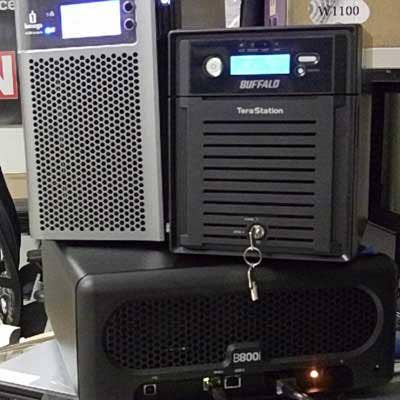
Trio Of Network Storage Devices
For customers in the market for network storage devices, there's certainly no shortage of choices. Here's a look at a cross section of units from three companies ranging in price, feature set and flexibility. All three of these networked storage devices include dual Gbit Ethernet ports, hot-swap drive capability and administration software for Mac OS X and Windows.
All were easy to set up, but for different reasons. Those from Iomega and Buffalo obtain an IP address automatically out of the box, and Drobo's software reduced iSCSI configuration to child's play. There's a lot to like about all three units, so without further ado, let's have a look.
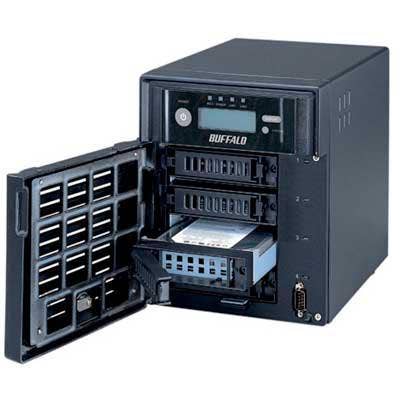
Buffalo Doesn't Buffalo
Buffalo Technology's popular line of NAS devices includes the TeraStation Pro TS-QVHL/R6, a feature-rich NAS product that was as easy to plug in and use as its name was hard to remember.
Buffalo's TeraNavigator installation utility is clearly aimed at the end-user. It starts with an illustrated step-by-step guide with prompts for Ethernet cable, power cable and switch. Then it disappears for a long minute until finally declaring that it had finished. Our test Mac mounted the NAS and it was ready for use.
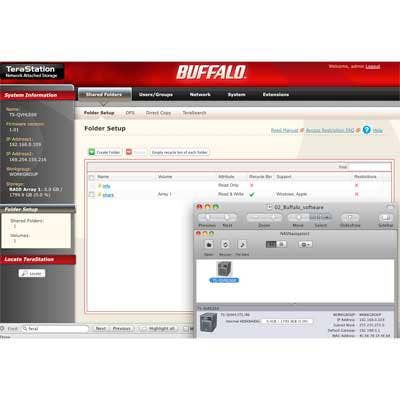
No Manual, Labor
The TeraStation may have been easy to set up initially, but figuring out how to adjust its settings was slightly less so. Call us old-fashioned, but we prefer a printed user manual over digital versions, particularly with a relatively complex and/or feature rich device such as a NAS. Buffalo provides an HTML-based manual on its CD, which also delivers installation routines for Mac OS X and Windows.
The installer places an icon for Buffalo's NASnavigator (inset) in the Mac OS X Dock (or on the Desktop in Windows). This is little more than a device browser that finds devices, displays some of their settings and provides a link to a browser-based configurator (larger image). The default login name and password for this are indicated on a quick set-up sheet but not in the manual. An 8TB unit lists for $2329.
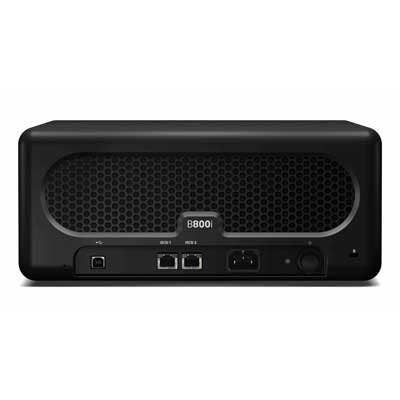
Domo Arigato, Data Roboto
Data Robotics on July 18 paid homage to its storage products by taking their name. And worthy of such praise it is. The Drobo B800i iSCSI Storage SAN for Business might just be the easiest RAID array that we've ever set up.
While it might not be the cheapest SAN appliance at $3,999 list unpopulated, the eight-bay Drobo B800i more than makes up for its price tag by eliminating the need for an experienced administrator. Thanks to its embedded system, the administrator's qualifications are reduced to the ability to recognize blue, green, yellow and red LEDs.
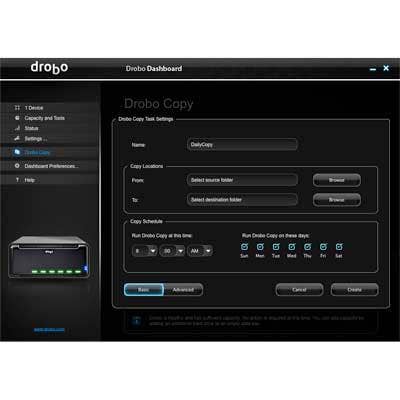
Drobo Not Drab-o
Nothing drab here. The slick-looking Drobo Dashboard admin tool is by far the easiest iSCSI software we've seen to configure. Drive formatting choices include NTFS, multi-host and none; NTFS, HFS+ and FAT32 file systems are supported (EXT3 is in beta). Capacity is selected with a slider in 2TB increments; the company's proprietary BeyondRAID software selects the RAID level automatically.
Once volumes and network settings are set, the tool is only really needed for taking basic data snapshots. Once sold separately, the Drobo Copy tool (seen here for Mac OS X) can be set on a schedule and includes features such as file exclusions, basic synchronization and multiple levels of reporting. A Windows version also is included.
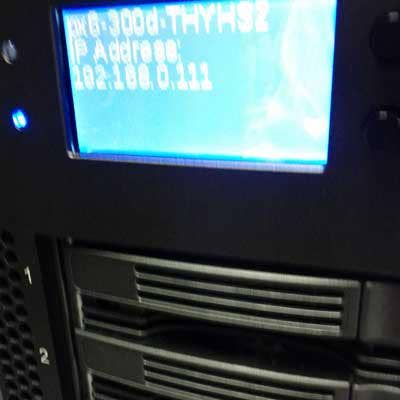
Hey, You, Come Onto My Cloud
Out of the box, the Iomega StorCenter px-6 300d was ready to serve in about two minutes. That was the approximate time it took to boot up, gain an IP address from our DHCP server and display the address on its front panel. That allowed testers to quickly find the device using Iomega's Storage Manager Utility for Mac OS X and Windows, which immediately prompts for the IP address of a device to configure.
From there it simply redirects further clicks to the host system's default browser, where it delivers extensive management functionality...until a Personal Cloud is created. That's where the fun begins...on the next slide.
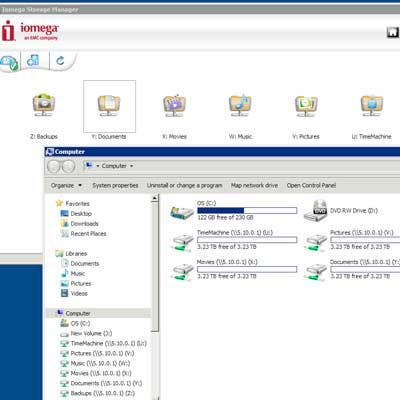
Iomega Maps
Once you've joined someone's Personal Cloud, the Iomega Storage Manager software for Windows automatically maps more drives than a Google Maps traffic report. Still, Iomega's pragmatic approach solves what can often be a complicated and circular maze of settings, windows and control panels with Windows File Sharing.
Among the most versatile network storage boxes we've seen, Iomega's px-Series can be configured as iSCSI (block-level) SAN or NAS (or both), with support for all major sharing protocols including support for Apple Time Machine. The unit supports RAID 0, 1, 10, 5, 5+1 and 6, SSDs and drive-less configuration; carriers support 2.5- and 3.5-inch drives. A large power brick is included where we'd prefer a simple power cord. Pricing starts at $1,199 unpopulated.